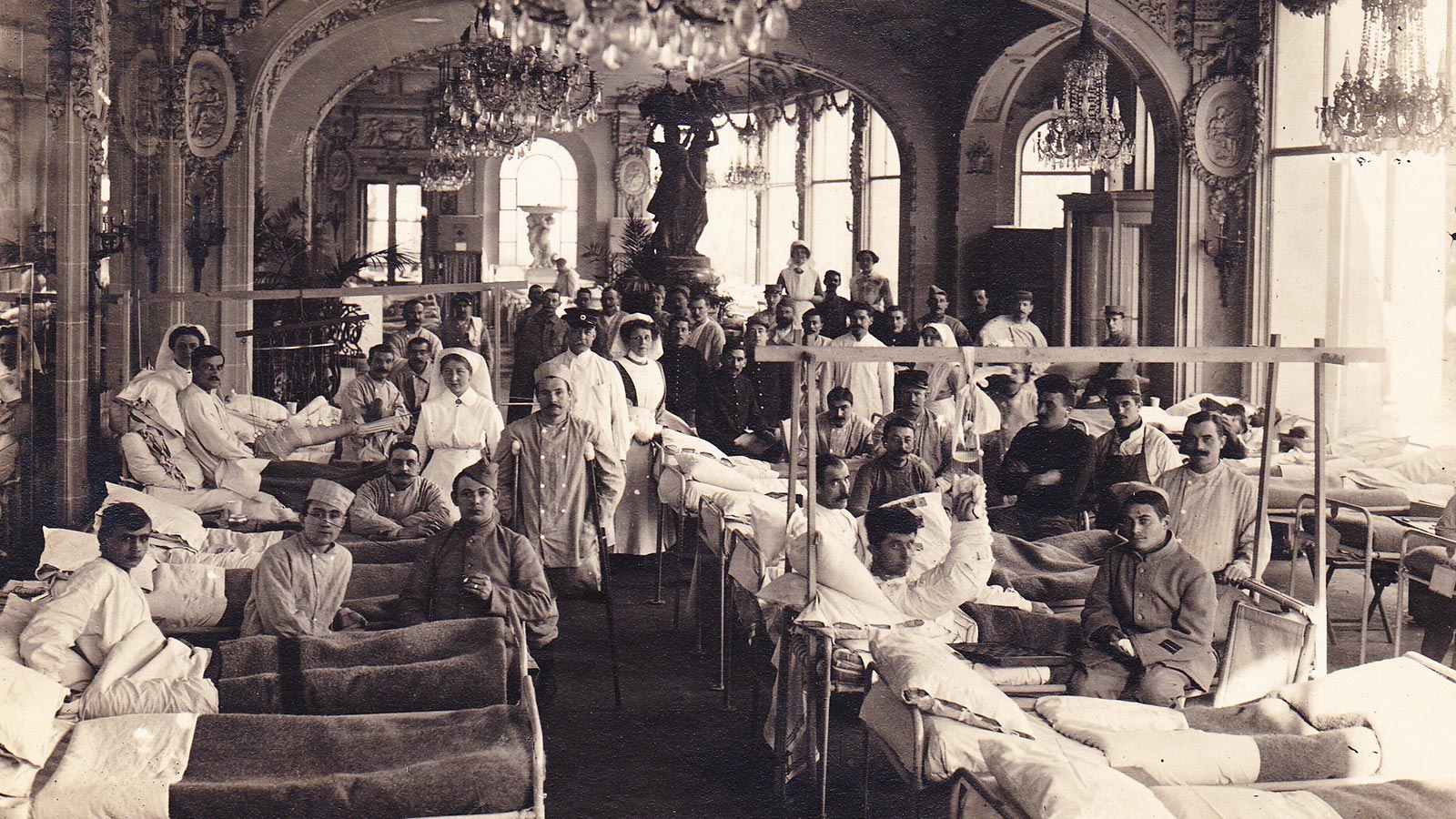Medal of Honour for Epidemics
During the Great War, several hospitals were set up in France funded by philanthropic organisations in the Allied countries — Canada, Australia, the United States, Spain, Denmark, Scotland, Russia, and Holland — to take in and treat those wounded in the war.
The Dutch hospital, initially funded by a group of Dutch organisations and then exclusively by Henri Deterding, chairman of the Royal Dutch Shell group, was set up in the Bois de Bologne, in the premises of what was – and still is – one of Paris’ top luxury restaurants, Pré Catelan.
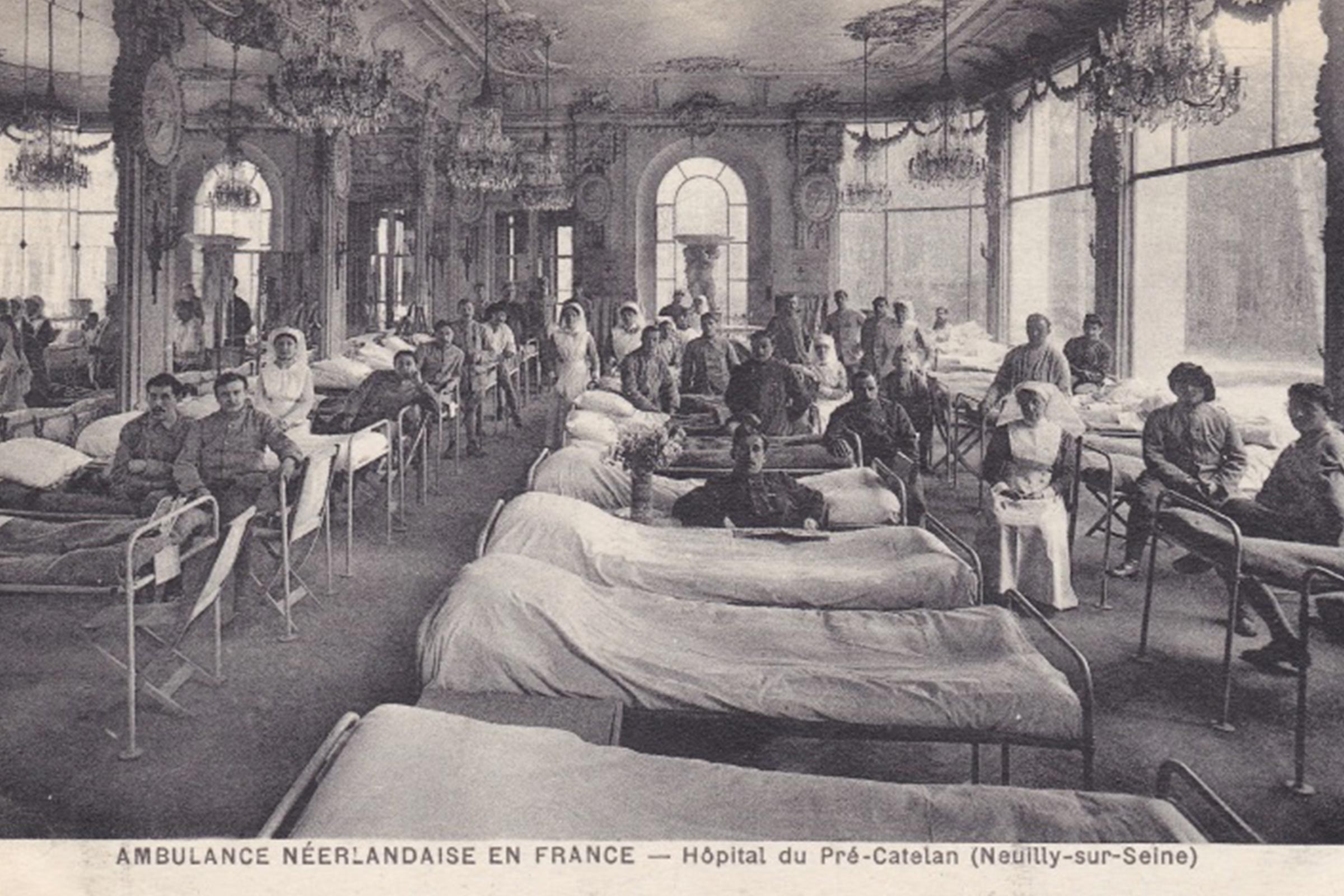
Calouste Sarkis Gulbenkian, shareholder and director in several Royal Dutch Shell group companies, and a friend of the group chairman, took on the role of representing him and administering the Hôpital Néerlandais du Pré-Catelan.
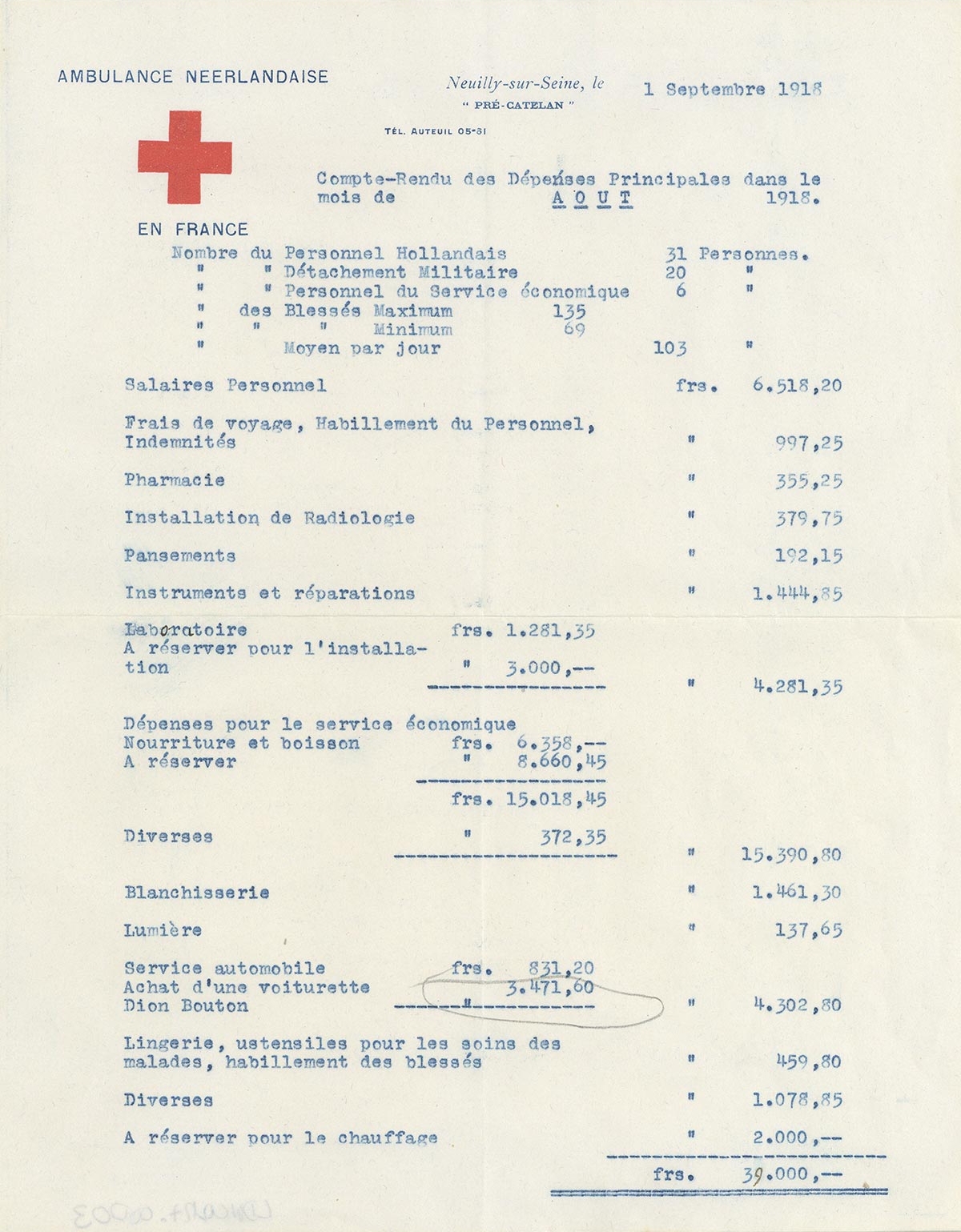
In order to accommodate 200 beds, the restaurant had to be revamped and sizeable financial contributions were received to pay for materials and to cover the payroll costs of hospital staff. All this is reflected in the lists of monthly expenditure sent to Calouste, conserved in the Founder’s archives.
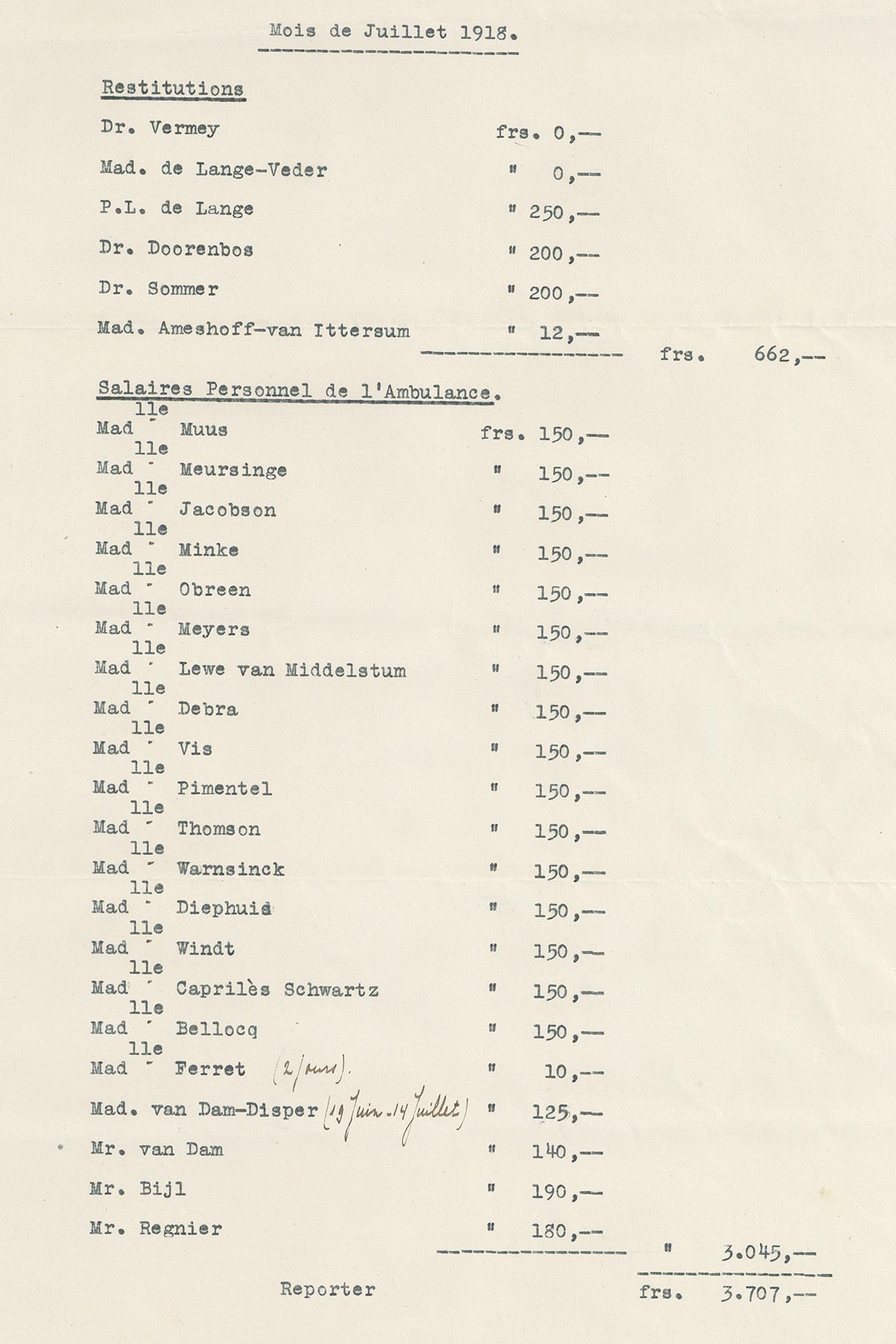
In addition to the war wounded, the improvised hospital also took in victims of the “Spanish influenza” (“grippe”), the epidemic that raged through Europe at the time and infected more than 500 million people worldwide.
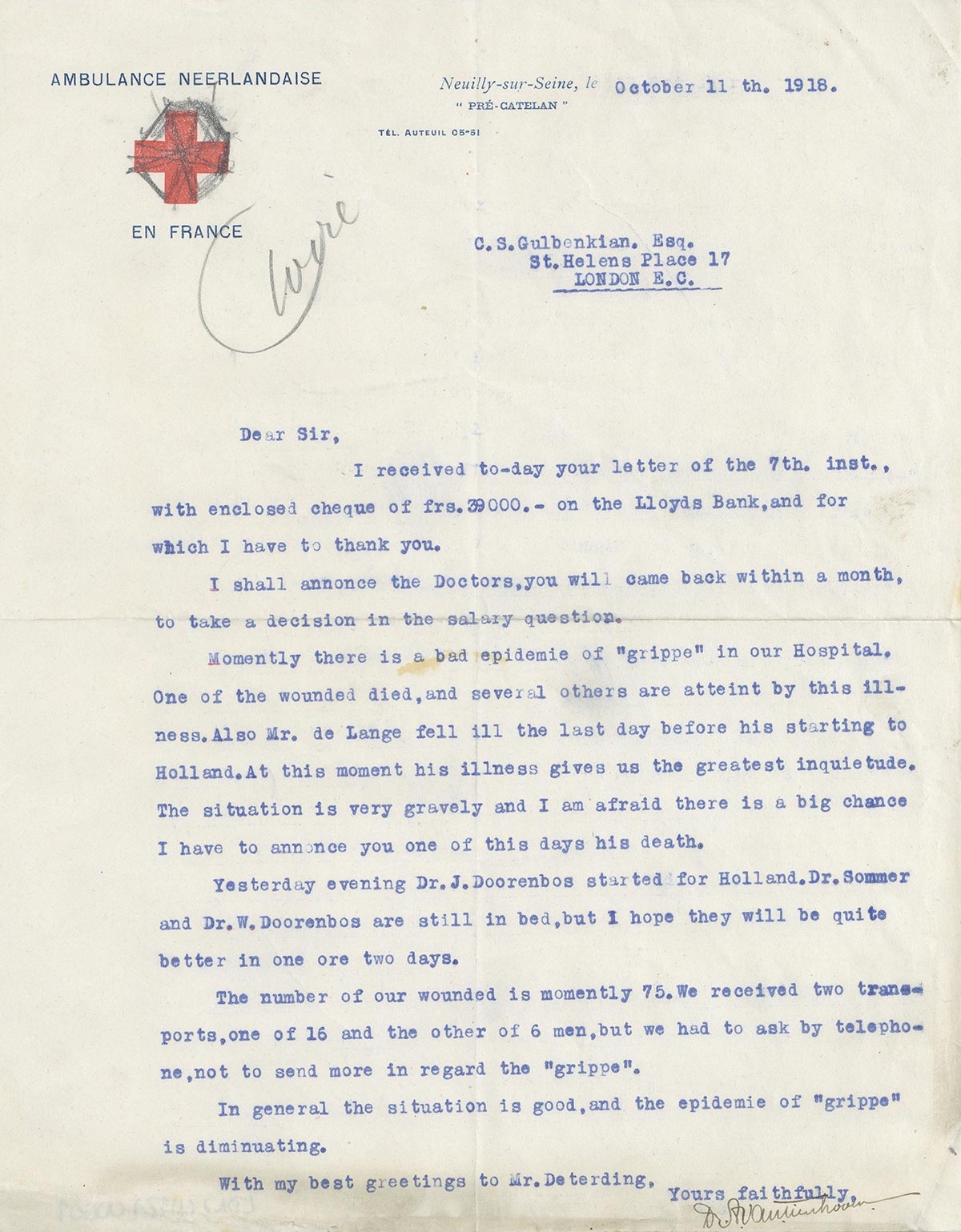
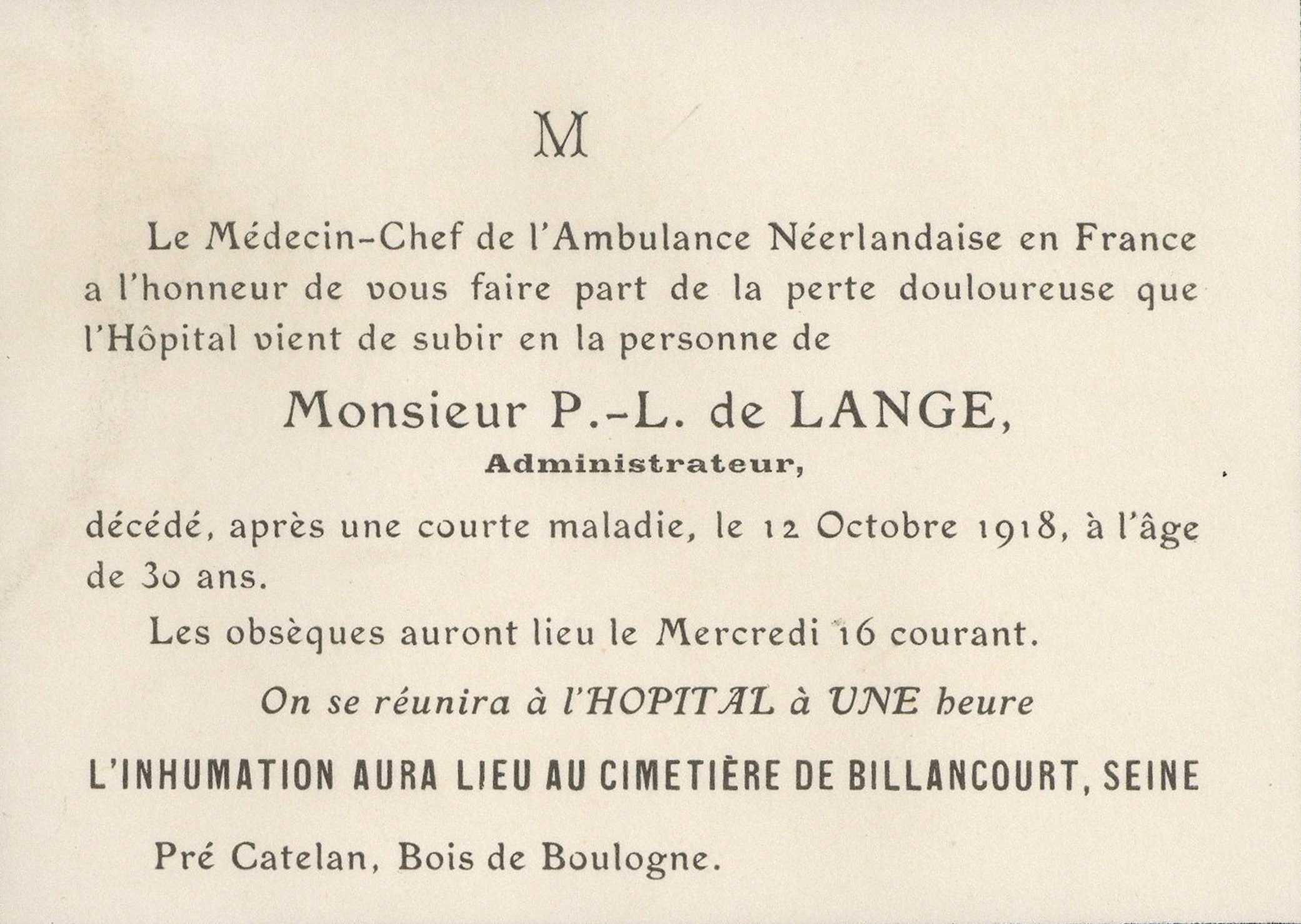
It is thought to have been in recognition of his support for the French Health Service that the War Ministry awarded Calouste a medal of honour, in silver-gilt, for his “good deeds”.
This medal, also known as the “Médaille d’Honneur des Épidémies”, was awarded to individuals who had particularly distinguished themselves during epidemics. The recipients were given an official diploma detailing their outstanding contributions.
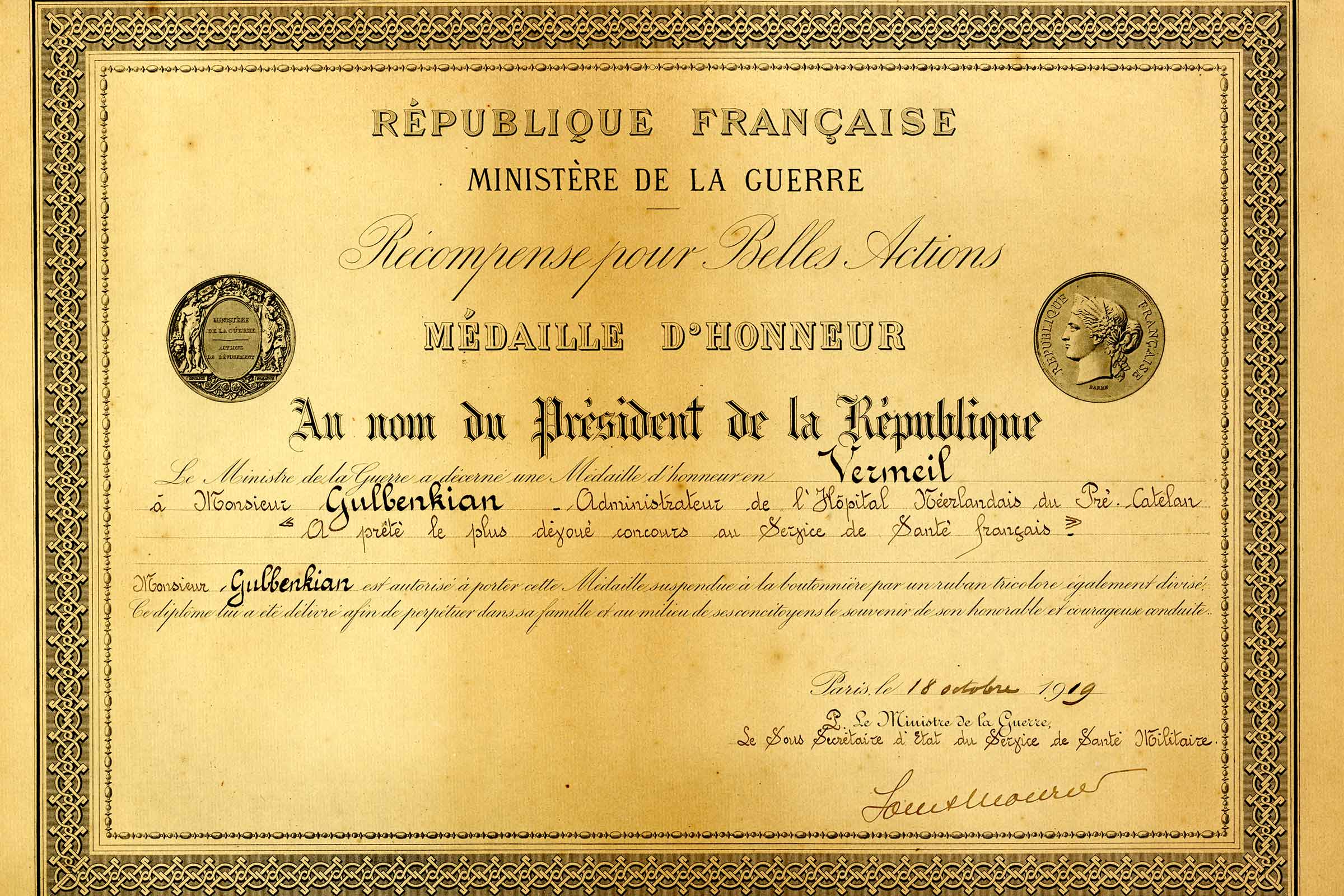
Four different medals were awarded, on a scale for the quality of the services rendered to the community: bronze, silver, silver-gilt and gold. The silver-gilt medals could only be awarded to holders of the bronze or silver medals or to members of the Légion d’honneur. Curiously, Gulbenkian had been offered this distinction by the French government, but he turned it down, and proposed instead that it be offered to his son, Nubar.
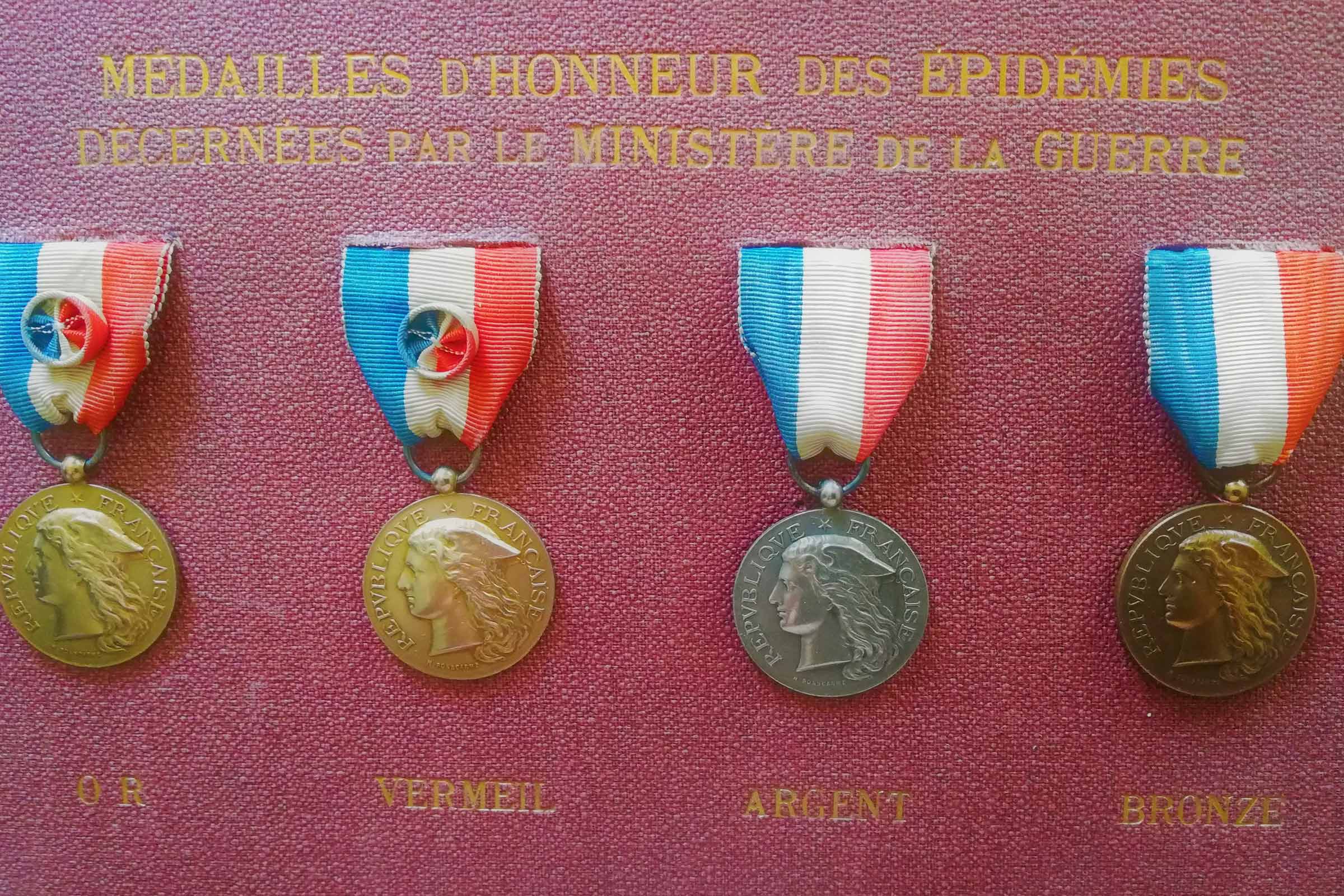
The diploma which accompanied the medal awarded to Calouste, which it has not yet been possible to locate, reads:
“On behalf of the President of the Republic, the Ministry of War has awarded a Medal of honour in Silver-gilt to Mr Gulbenkian, administrator of the Dutch hospital Pré-Catelan, for his most devoted assistance to the French Health Service.
Mr. Gulbenkian is authorised to wear this medal on his lapel, on a tricolour ribbon.
This diploma was awarded in order to preserve the memory of his family and his fellow citizens of his honourable and courageous conduct.”
Interestingly, the “médaille des épidémies” appears to have been the only honour that Calouste wished to receive, as related by his employee and biographer Marcelle Chanet: “As for C. S. Gulbenkian believing that his only merit was to help fight epidemics — his most formidable enemy — during his war work, which also included managing the Dutch hospital Pré Catelan, he was unwilling to receive any honour from France other than the Medaille des Epidemies. This medal, in silver-gilt, was awarded to him in 1919.”
From the Archives
Significant moments in the history of Calouste Gulbenkian and the Gulbenkian Foundation in Portugal and around the world.
